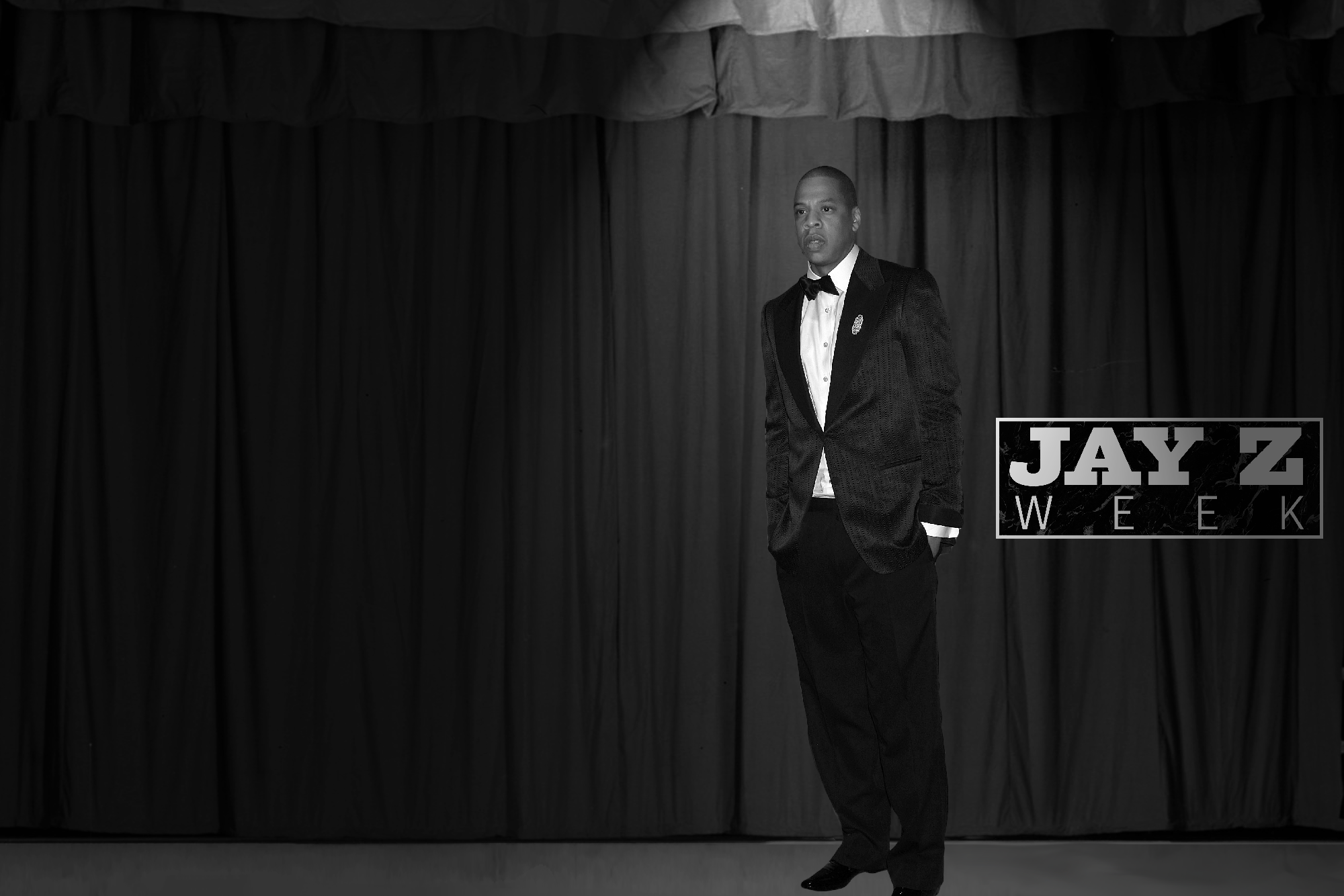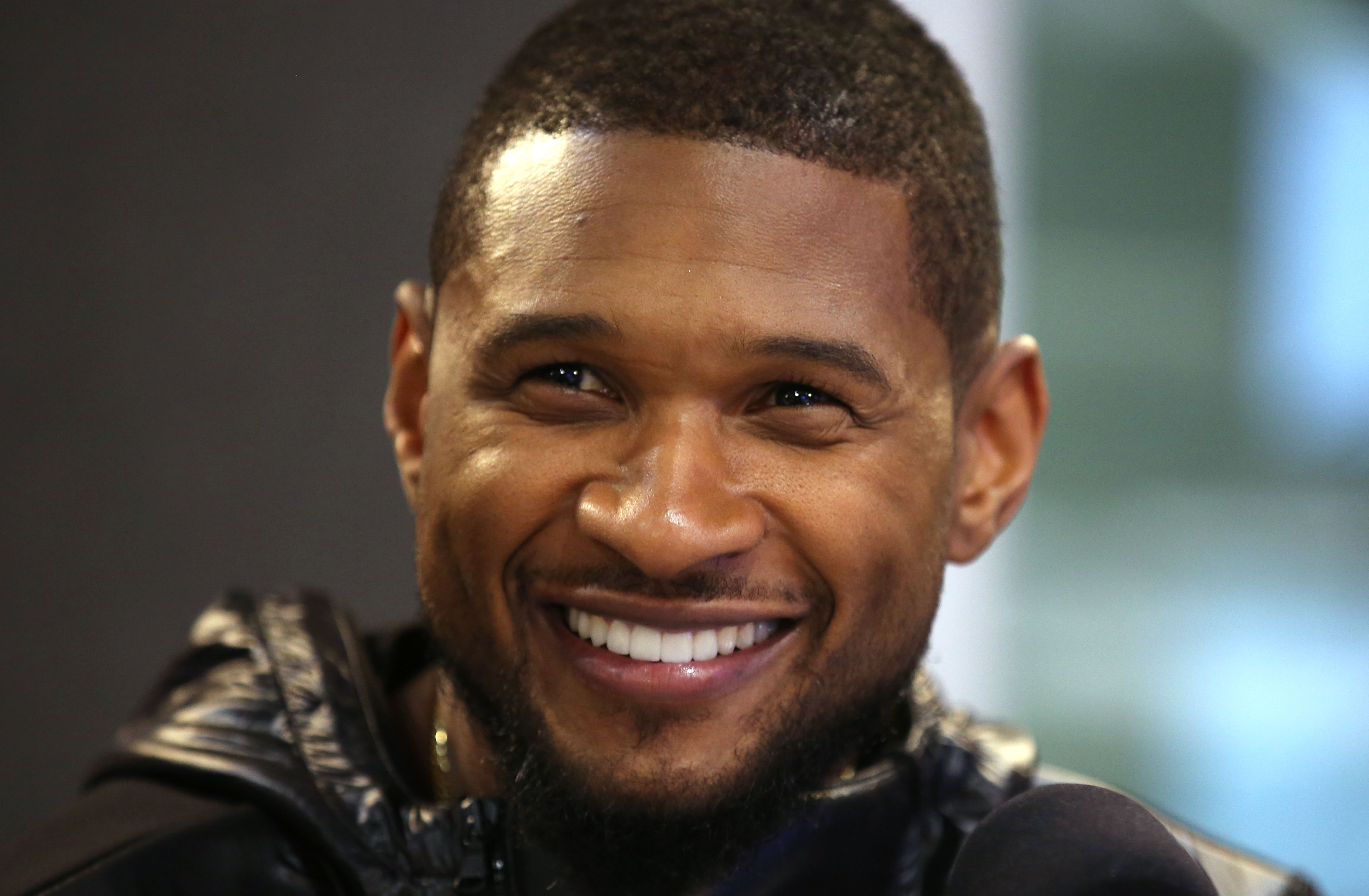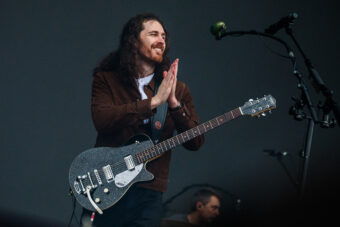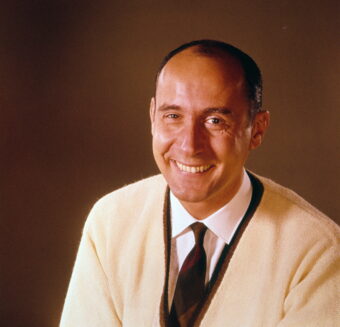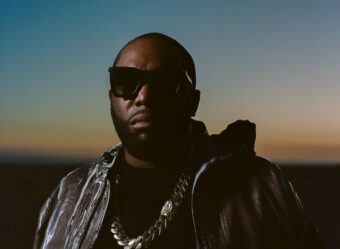In honor of the recent 20th anniversary of Jay Z’s debut album, Reasonable Doubt, we’re publishing a series of pieces looking at the rapper’s singular career and achievements. Welcome to Jay Z Week.
“How I’m supposed to win? They’ve got me fighting ghosts” — Jay Z, 2006
If you’ve recently come out of a coma, it’s been just over two months since Beyoncé debuted Lemonade, her sixth solo album, as an hourlong film on HBO. As a record, Lemonade is eclectic and precise and carefully made; as a “visual album” it’s an engrossing, impressionistic experience that wrestles with issues of love and family and womanhood, often where they intersect with race, at other points where they’re complicated by fame. But on the night of its release, Lemonade’s finer points were overshadowed by the year’s best tabloid headline: Jay Z (apparently) cheated on Beyoncé.
By the album’s end, it was clear that the couple had reconciled and weathered the storm. If you piece together scraps of info from friends and associates, any major rift in their marriage probably dates back several years. Still, when word began to trickle out — very obviously from his own camp — that Jay is prepping a new solo album, blogs and fans were quick to label it a “response” to Lemonade, which is patently absurd.
Whether you take the cynical view (that everything the Carters do is plotted out by elite publicity firms) or a softer one (that these records are a natural response to a problem millions of couples face), the release docket has likely been set for some time. Still, there’s no question that Jay is wading into uncharted waters: In the past, moments that might have been shameful in real time (shooting his own brother, losing 92 bricks) served as myth-making, the grisly pieces that rounded out his origin story. From the summer of 1996 until very recently, Jay trafficked in unflappable, disaffected cool. But the most vivid image of Jay from this year is him lying on his side, gripping desperately onto the woman he betrayed.
Which begs the question: Could a new Jay Z album be any good? Based on recent history, the short answer would probably be “No.” By and large, Jay’s been diminished as a rapper since he came back from his brief mid-’00s “retirement,” and with a few notable exceptions, he’s been a pale, straining imitation of his peak self. On the other hand, he’s remained a commercial force; in ‘09, he scored his first No. 1 hit with “Empire State of Mind.” When he has succeeded in his second act, it’s often been when his focus is at its most narrow, and when he’s removed from the immediate reality of his life as a too-big-to-fail corporate entity. Is it possible that pulling back the curtain the way today’s 360-degree branding demands will yield the first good Jay Z album in almost a decade? Or have the skills that made him him atrophied past the point of reclamation?
This November marks the tenth anniversary of Kingdom Come, the Lazarus myth brought to you by Budweiser that even Jay has acknowledged as mostly a mess. While he wasn’t exactly coming in cold off the bench — he had stellar turns on Jeezy’s “Go Crazy,” Kanye West’s “Diamonds From Sierra Leone” remix, and “Dear Summer” in ‘05 — Jay’s comeback caught him feeling around in the dark for new points of view (Def Jam president, middle-aged success story) that would never really gel. Just Blaze contributed a suite of three songs at the top of the album (including a clever “Superfreak” flip for the title track), but Mr. Carter squandered each opportunity. “Anything” into “Hollywood” is probably the worst one-two punch in Jay’s entire catalog, and “Gotta admit — a little bit, I was sick of rap / But despite that, your boy is back” isn’t exactly a persuasive argument for a return. And “30 Something” sounded more desperate than paradigm-shifting.
The record did have a couple of unqualified successes, like the Dr. Dre-produced “Lost One” (which sounded curiously like a Beyoncé breakup), “The Prelude” (“Back when crack was what these pills are, I was a real star”), and the Kanye-helmed “Do U Wanna Ride.” But even some would-be-enthralling ideas are hampered by sloppy and uncharacteristically awkward execution. “Minority Report” is a missive about Hurricane Katrina made doubly introspective when Jay takes himself and others in his tax bracket to task for writing a check and changing the channel. It’s probably the album’s most gripping bit of writing, too, but it’s nearly derailed by an exaggerated version of the whisper-flow that he cribbed from Young Chris five years earlier.
In an interview with Complex in 2012, Jay’s longtime engineer, Young Guru, noted that Kingdom Come was rushed out during a demanding string of stadium shows in Africa, which very well could have taken a toll on Jay’s voice, as well as his pen. Yet if we’re talking about Katrina, there’s no denying that lead single “Show Me What You’ve Got” was more or less erased by Lil Wayne’s freestyle over the same beat, which itself amounted to little more than an afterthought on Weezy’s mixtape magnum opus, 2007’s Da Drought 3. The reign was over.
But if you caught Jay on the right day, he was still on the shortlist for Best Rapper Alive. Three weeks before Kingdom Come came out, Jay Z stopped by Funk Flex’s show on Hot 97 to promote the album. There, he rattled off one of the greatest verses of his career, in the form of an extended freestyle over Kanye’s “Grammy Family” beat. It starts with a lament for his lonely place in history (“‘Hov’s got flow, though he’s no Big and Pac, but he’s close’ / How I’m supposed to win? They’ve got me fighting ghosts”), then goes on to make an eerily strong case that he belongs there. He’s watching Brutus stab Caesar one moment, then rubbing shoulders with Rupert Murdoch “and some dudes you never heard of” at a Time photoshoot. He’s paranoid and petty, immortal and invincible.
A month after Kingdom Come, Nas dropped Hip Hop Is Dead, a messy but underrated record. The marquee moment was “Black Republican,” the first time once-rivals Jay and Nas appeared on a track together after finally agreeing to a ceasefire. The tone was perfect: The beat was built on the orchestra from The Godfather Part II, but Jay joked about the bombast on the extended intro (“Niggas usually just start rapping after four bars, nigga, go in!”). Then he launched into a verse that dwarfed anything on his own album, a cryptic cautionary tale that packed emotional weight and showed a vocal dexterity seldom seen since Blueprint 2.
And that was more or less the Jay we would get in 2007. Hov dove back into the album-every-year spin cycle he’d maintained in his pre-retirement days, only instead of trying to make Coldplay songs or shill AARP memberships, he took two steps out of his new reality to visit one he knew how to better navigate on record. American Gangster is loosely based on (and serves as a companion sort-of-soundtrack to) the movie of the same name, starring Denzel Washington as Frank Lucas, the heroin dealer from Harlem who imported wholesale quantities of the drug directly from Vietnam in the late ‘60s and early ‘70s.
A little more than a third of the album was produced by Diddy and the Hitmen, folding in pieces of ‘70s soul as Jay recounted his formative years. At the time, he and Beyoncé were making blog headlines for palling around with Chris Martin and Gwyneth Paltrow; the more familiar backdrops on American Gangster left little room for the lazy platitudes of Kingdom Come’s “Beach Chair.” He was reinvigorated, walking step-by-step through the process of building a crack empire on “American Dreamin’,” hiding razors under his tongue on “Hello Brooklyn 2.0,” scoffing at Lucas’ turn as an informant on “No Hook.” Throughout, Jay was technical, witty, vital.
American Gangster isn’t just a period piece; at its best, it contrasts Jay’s untouchable drug-kingpin character with the man behind the music. See: “Say Hello,” which — other than beautifully blending its soul themes with producer DJ Toomp’s era-defining maximalism — takes moralists to task (“And if Al Sharpton is speaking for me, somebody get him the word and tell him I don’t approve.”) The updated version of the Black Album-era B-side “Ignorant S**t” is notable for being the last great collaboration between Jay and Beanie Sigel, the incisive Philly street rapper who later fell out with Hov. “Fallin’” traces a hustler through his Icarus phase (“Got to one brick, then I looked to the sky like, ‘Sorry, God, I lied, give me one more try’ / Got to two bricks, new cars, new whips”), all the way to a cold cell and empty commissary.
But then come the album’s final two tracks, which re-establish Jay as a first-rate MC and tweak the narrative just a bit. First is the masterful “Blue Magic,” where Reaganomics get a dressing-down with impeccably aligned syllables: “Blame Reagan for making me into a monster / Blame Oliver North and Iran-Contra / I ran contraband that they sponsored / Before this rhyming stuff, we was in concert.” Then we have the title track, a joyous Just Blaze cut that provides an alternate ending to the dealer’s story, filled with mansions and chauffeurs and casual relationships with Denzel Washington. It might be important to note that partway through “Fallin’,” the perspective shifts from the first person to second.
After American Gangster, Jay returned to the pop charts. (Though Gangster debuted at No. 1 and has since gone platinum, he pulled the album from iTunes at one point, claiming he wanted it to be experienced as a whole, and it spawned no major hits.) On the surface, it made sense: Kingdom Come could be written off as a misstep, a dusting off of the cobwebs, and the next LP would be the Hard Knock Life to Gangster’s Reasonable Doubt.
Early returns were promising. “Brooklyn Go Hard,” a Santigold-featuring promotional single from the Notorious soundtrack, is lean but larger-than-life, and just a little bit foreign; the second verse (“I father, I Brooklyn Dodger them / I jack, I rob, I sin / Aw, man, I’m Jackie Robinson / Except when I run base, I dodge the pen”) is superhuman. “Jockin Jay-Z” — which Kanye built around a sample of Run saying “jocking J.C.” from Run-DMC’s “Dumb Girl” — isn’t as virtuosic, but it has Jay sounding engaged in a way he rarely was in ’06.
Yet when Blueprint 3 arrived after a long delay in September of 2009, it landed with a thud. Not at cash registers, mind you, and it was well-reviewed by a handful of major publications. But try listening to it front-to-back in 2016: It’s an unfathomable mess. The Drake-assisted “Off That” sounds like your dad trying to fit into skinny jeans; “Venus vs. Mars” is entirely flaccid; “A Star Is Born” is so mawkish and self-congratulatory that it doesn’t even need the J. Cole verse to sink it.
The quietly excellent “Thank You” is a silver lining, and the consecutive trio of singles that follows isn’t totally without merit. “D.O.A” sputters as a call to arms, but No I.D.’s beat is undeniable; “Run This Town” is more than solid; “Empire State of Mind,” grating as it became, did sneak flexes about coke wholesale prices into a song that soccer moms would learn by heart. But on the whole, Blueprint 3 is a scattered, directionless collection of Jay’s most egregious mistakes to date. Kingdom Come feels lazy and half-finished; Blueprint 3 feels sickly sweet by design.
While the royalty checks rolled in, Jay was mostly quiet in 2010. He contributed two so-so verses to Kanye’s My Beautiful Dark Twisted Fantasy, which became an instant critical darling and re-established some of the support the Chicagoan had mortgaged not only by interrupting Taylor Swift at the 2009 MTV VMAs, but also by making the once-divisive, since-vindicated 808s & Heartbreak. After Dark Fantasy wrapped, Jay and ‘Ye absconded to the south of France, then to Australia, and finally back to New York City to write and record Watch the Throne.
Originally teased as an EP, Throne became one of the biggest Event Records of this current decade. With the more recent advent of streaming, advance leaks for major projects — Lemonade included — have been all but eliminated. But in August of 2011, keeping Watch the Throne under wraps until its hour of release was a major accomplishment.
The album wasn’t as well-received as Dark Fantasy; at the time, some critics and fans complained that some of the opulent production, artwork, and writing was out of touch with the country, which had yet to recover from the financial collapse of 2008. But with the benefit of hindsight, Throne looks much better: unapologetically pro-black and endlessly fun. “Who Gon Stop Me” is a tepid play for a dubstep scene that, by ‘11, had already fizzled Stateside, and “Lift Off” should have been left on the cutting-room floor, but songs like “Murder to Excellence,” “No Church in the Wild,” “Niggas in Paris,” “Otis,” and all four bonus tracks far outstrip any reasonable expectation for a rapper on the wrong side of 40.
Take “H•A•M,” which survives as a bizarre little ode to that first Lex Luger run. Jarring as it once seemed to an audience that was expecting a sequel to “The Joy” (the nostalgic Pete Rock-produced single that was originally released in 2010 but also ended up as a Throne bonus track), Jay’s verse is excellent, and the passage that contains the Birdman diss — “I’m like ‘Really? Half a billi, nigga, really?’ / You got baby money / Keep it real with niggas / Niggas ain’t got my lady money” — is airtight.
Which brings us closer to the present. Three years ago, just days after Kanye had bucked expectations and dropped his cold, industrial Yeezus, Jay announced a new album for a Fourth of July release date, complete with a trailer showing Timbaland, Pharrell, and a shoeless Rick Rubin kicking around ideas in a midtown loft. The snippets of beats were enticing; at one point, on the song that would become “Holy Grail,” the bass drop actually blows out Timbo’s speakers.
But Magna Carta Holy Grail, which had the misfortune of being ushered into the world via Samsung Galaxy, failed to capitalize on any of the momentum from its abbreviated rollout. Songs like “Oceans” and “Part II (On the Run),” which pair Jay with Frank Ocean and Beyoncé, respectively, are little more than strings of aphorisms that gesture at high-minded themes. “Holy Grail,” even when you set aside Justin Timberlake’s cloying vocal, is a dully cynical take on fame; “F.U.T.W.” tries to shore up Jay’s coast-to-coast street cred while plugging tickets for his and Bey’s Live Nation tour.
And it’s a shame, because some of the production on Magna Carta is otherworldly — specifically check the punishing “F**kwithmeyouknowigotit,” “Tom Ford,” and both halves of the sinister “Picasso Baby.” It’s on that last song that Jay finds moments where the art-rap and the dad-rap work, like when he tells his infant daughter it’s fine to lean on an exorbitantly expensive Basquiat because she owns it. But aside from a few stray lines, Jay finds himself overmatched, or, more likely, content to simply phone it in.
Even with the disappointments of the past few years, it seems wrong (or at least reductive) to say that Jay is washed up. Sure, it’s been nearly a decade since American Gangster — which, by the time this new record comes out, will weirdly mark the midpoint of his career — but since Magna Carta, he’s shown signs of life once again. In 2014, he added a verse to the title track from Jeezy’s Seen It All: The Autobiography, which has mostly been passed over by critics in favor of that record’s other, more on-trend tracks. “Seen It All” doesn’t just tower over everything on Magna Carta; it’s up there with American Gangster, the “Grammy Family” freestyle, and Jay Electronica’s “Shiny Suit Theory” as Jay’s best work since 2003’s The Black Album, or even since 2001’s The Blueprint.
He recounts his supplier’s murder and his friend’s incarceration, all while he’s rapping as if his 1999 self had an extra decade to tweak his most technical flows:
Had a plug in St. Thomas on a trillion watts
Flew him back to the States, park 92 bricks in front of 560 State
Now the Nets a stone throw from where I used to throw bricks
So it’s only right I’m still tossin’ ‘round Knicks
Probably brought your auntie a couple bags
I probably front your uncle a couple halves
I was in the S-Class, you was just in class
There are no more Blueprints stashed away, and probably no more Gangsters, either. If and when this new Jay Z record is beamed into our brains by TIDAL satellites, there’s a very real chance that it’s another minor blemish on his legacy, another sign that he should just hang it up for good. But you never know, right?
Last month, Jay added a verse to “All the Way Up,” the wildly popular single from Fat Joe, Remy Ma, and Cool & Dre which was already, obviously, an anachronism. The song is the platonic ideal of a rap hit built for a New York summer: the sneering beat, the maybe-too-tight-for-radio verses, French Montana. Jay’s verse quotes Gang Starr and references Dave LaChappelle; the Guru lift is itself a Lemonade plug. He’s drinking D’usse out of his Grammys, he’s saying “survival of the littest.” It’s a grab bag of his post-2006 tics, but — “littest” aside — it comes close to the sort of Event Rap grandiosity that he’s embodied during the better parts of his latter-day career. “I Got the Keys,” his collaboration with Future for DJ Khaled’s Major Key album, debuted earlier this week; it’s tepid but also shows a bit of impressive technical dexterity.
In between those two songs, he contributed a verse to Pusha T’s latest single, “Drug Dealers Anonymous,” an ominous, sinister cut on which Pusha explains that he kept his donations to Flint residents anonymous so the feds couldn’t find his name on any 18-wheeler manifests. Despite somewhat mixed results with his own full-length solo efforts, Pusha is widely regarded as one of the best bar-for-bar rappers in the world of coke rap, and his turn on “DDA” is pristine. But Jay wrestles the spotlight away with alarming ease. His verse isn’t as uniformly clean as Pusha’s — he urges you to Google him twice in quick succession, and ends with an abysmal “Damn Daniel” joke — but the highs are staggering.
He’s picking Rolls Royces out of his garage because he hears ghosts; he’s ripping up the floors in his home to make room for koi fish; he’s putting you in the interrogation room where his partner took a 12-year sentence instead of implicating Jay. He remembers running through Virginia, then tells you to ask Teddy Riley about him. Imperfect as it is, it’s the kind of picture only a handful of writers at any age can render. There’s something left in the tank after all — maybe a pump-fake at divorce is what he needs to draw it out.

